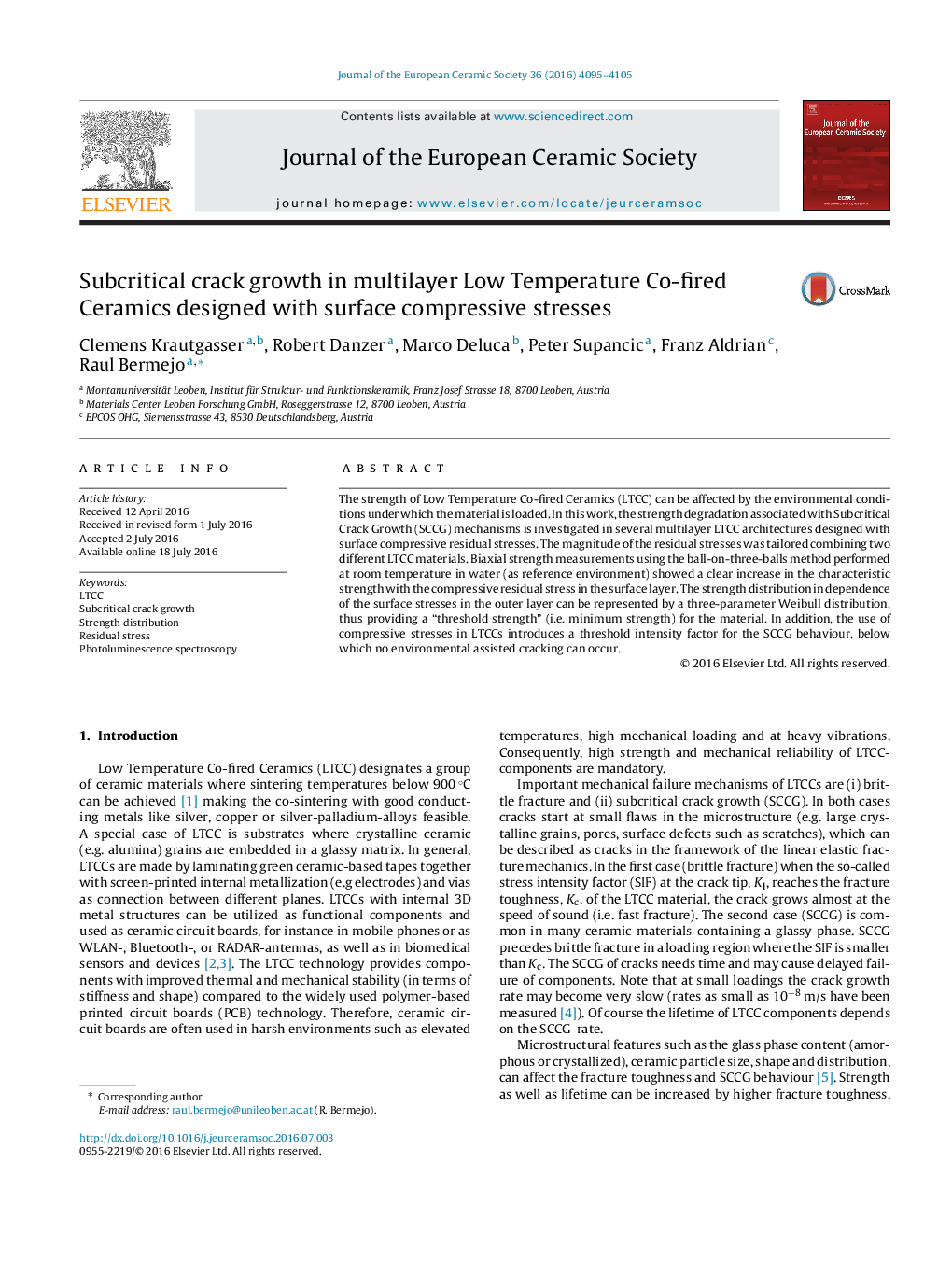| Article ID | Journal | Published Year | Pages | File Type |
|---|---|---|---|---|
| 5440804 | Journal of the European Ceramic Society | 2016 | 11 Pages |
Abstract
The strength of Low Temperature Co-fired Ceramics (LTCC) can be affected by the environmental conditions under which the material is loaded. In this work, the strength degradation associated with Subcritical Crack Growth (SCCG) mechanisms is investigated in several multilayer LTCC architectures designed with surface compressive residual stresses. The magnitude of the residual stresses was tailored combining two different LTCC materials. Biaxial strength measurements using the ball-on-three-balls method performed at room temperature in water (as reference environment) showed a clear increase in the characteristic strength with the compressive residual stress in the surface layer. The strength distribution in dependence of the surface stresses in the outer layer can be represented by a three-parameter Weibull distribution, thus providing a “threshold strength” (i.e. minimum strength) for the material. In addition, the use of compressive stresses in LTCCs introduces a threshold intensity factor for the SCCG behaviour, below which no environmental assisted cracking can occur.
Keywords
Related Topics
Physical Sciences and Engineering
Materials Science
Ceramics and Composites
Authors
Clemens Krautgasser, Robert Danzer, Marco Deluca, Peter Supancic, Franz Aldrian, Raul Bermejo,
